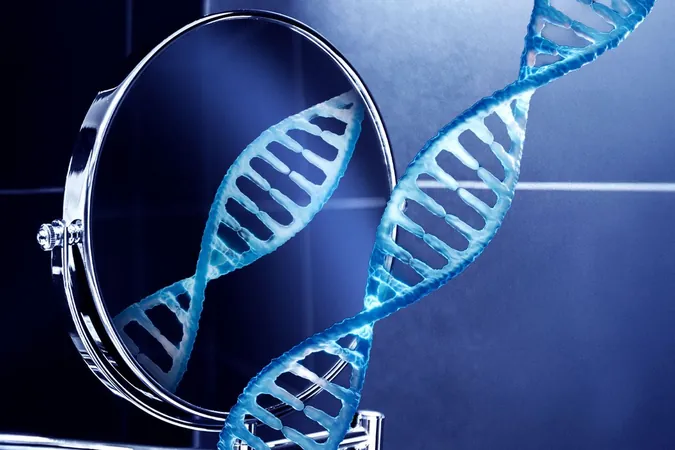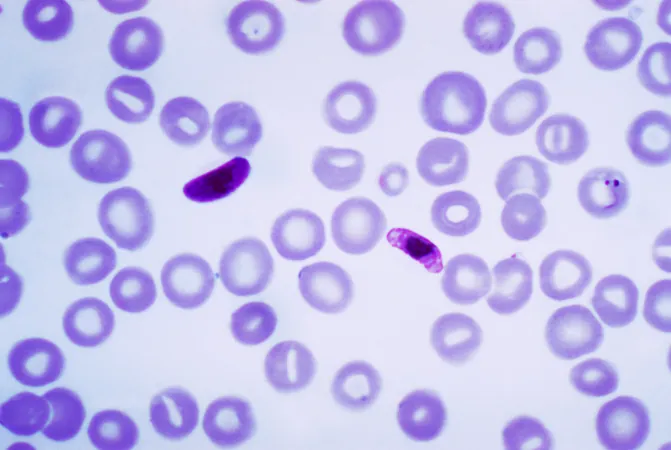
Scientists Sound Alarm on "Mirror Life": A Potential Existential Threat We Can't Ignore
2025-01-18
Author: Rajesh
Introduction
In a world already fraught with challenges, a new concern has emerged, sending shockwaves through the scientific community. A recent report published in *Science* warns of an extreme existential risk posed by 'mirror life,' a concept that many may find perplexing. The term might evoke thoughts of dystopian television series like *Black Mirror* or virtual realms such as *Second Life*, but it refers to synthetic organisms crafted with building blocks that are mirror images of conventional DNA, RNA, and proteins.
An impressive coalition of 38 scientists contributed to this alarming report, reinforcing the urgent need for global dialogue among researchers, policymakers, and the public about the implications of bioengineering such organisms. These synthetic entities, while hypothetically possible, could present significant dangers that require immediate regulatory discussion.
What is Mirror Life?
Mirror life isn’t a whimsical idea from a children's book — it’s grounded in molecular biology and biochemistry. All life as we know it operates on certain structural rules. For instance, proteins are predominantly composed of left-handed amino acids, while DNA forms from right-handed nucleotides. The synthetic organisms envisioned would reverse these conventions, potentially leading to new forms of life that could evade detection by existing biological immune systems.
Dr. Michael Kay, a biochemist at the University of Utah, emphasizes that the enabling technologies for creating these mirror bacteria are advancing quickly. If appropriate measures are not taken to regulate their development, we could be heading toward unforeseen consequences. The strikingly varied backgrounds of the scientists involved include Nobel laureates and risky bioscience pioneers like Craig Venter, hinting that they are thought leaders rather than alarmists.
The Science Behind Mirror Molecules
The concept of chirality, or 'handedness,' plays a pivotal role in this discussion. Just as your left and right hands cannot perfectly superimpose on one another, many biological molecules exhibit a similar property. This means that a molecule and its mirror image can behave entirely differently. What this means for synthetic mirror organisms is monumental — they could effectively become undetectable invaders, able to grow and replicate unchecked by the immune systems of both humans and other organisms.
Historically, the notion of mirror life can be traced back to Louis Pasteur in the 1860s. It gained momentum in the 1990s when researchers like Stephen Kent began synthesizing mirror molecules for therapeutic purposes. These mirror peptides could evade standard protease recognition, granting them a unique therapeutic potential. However, as this technology advances, concerns have arisen over possible mirror bacteria that could threaten ecological balances and human health.
The Risks of Mirror Microorganisms
The hypothetical creation of fully functional mirror organisms comes with disturbingly potential risks. They could multiply rapidly within hosts without triggering any immune response, raising fears of uncontrollable infections that might decimate both human populations and ecosystems. The current understanding of these biologically engineered organisms remains speculative, but recent advancements in gene-editing tools like CRISPR highlight how quickly our capabilities are evolving.
Moreover, the report's authors note the potential impact on vulnerable populations, particularly young children, whose developing microbiomes might lack the robustness to fend off such alien invaders.
A Call for Global Regulation
While we are not yet living in a reality infused with mirror life, the science that could lead us there is burgeoning. With the possibility of realizing these synthetic organisms within the next decade, now is the time for collective action. Dr. Kay suggests building an international consensus to ensure that any research conducted does not stray into dangerous territory.
Incorporating diverse opinions and insights from around the globe may prevent us from creating a 'Frankenstein’s monster' scenario. The distinction between therapeutics that employ mirror peptides and potentially harmful mirror bacteria needs careful attention. While mirror peptides could revolutionize medicine by evading immune response, mirror bacteria pose uncharted risks.
As the scientific community navigates this complex terrain, we find ourselves at a crucial juncture where knowledge and foresight could mean the difference between a breakthrough in medical science and an unprecedented biological threat. The time for action — for conversation and regulation — is now. For the sake of our health, our environment, and our very existence, we cannot afford to ignore the mirror we are peering into.






 Brasil (PT)
Brasil (PT)
 Canada (EN)
Canada (EN)
 Chile (ES)
Chile (ES)
 Česko (CS)
Česko (CS)
 대한민국 (KO)
대한민국 (KO)
 España (ES)
España (ES)
 France (FR)
France (FR)
 Hong Kong (EN)
Hong Kong (EN)
 Italia (IT)
Italia (IT)
 日本 (JA)
日本 (JA)
 Magyarország (HU)
Magyarország (HU)
 Norge (NO)
Norge (NO)
 Polska (PL)
Polska (PL)
 Schweiz (DE)
Schweiz (DE)
 Singapore (EN)
Singapore (EN)
 Sverige (SV)
Sverige (SV)
 Suomi (FI)
Suomi (FI)
 Türkiye (TR)
Türkiye (TR)
 الإمارات العربية المتحدة (AR)
الإمارات العربية المتحدة (AR)